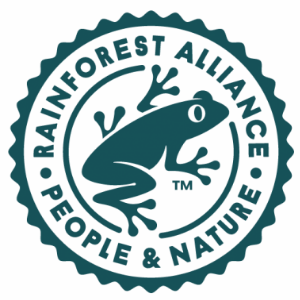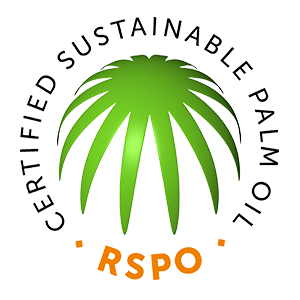Why Palm Oil is Everywhere and Why It Matters
Environmentally friendly palm oil is becoming increasingly essential as it is a key ingredient in about half of all supermarket products. From snacks to soaps, its efficiency and versatility make it a staple in many industries. But there’s a downside. Palm oil production has significant environmental challenges. It often leads to deforestation and biodiversity loss, particularly in Southeast Asia.
However, there’s hope. Sustainable and environmentally friendly palm oil production offers a way to address these issues. It balances the need for economic benefits with environmental protection. By adopting sustainable practices, we can reduce the negative impacts while still enjoying the advantages of this versatile oil.
The Good and Bad of Palm Oil: Efficiency Meets Environmental Concerns
 Palm oil presents a unique dichotomy. On one hand, it is incredibly efficient. Compared to other vegetable oils, palm oil requires much less land to produce the same amount of oil. This high yield makes it a preferred choice for many industries.
Palm oil presents a unique dichotomy. On one hand, it is incredibly efficient. Compared to other vegetable oils, palm oil requires much less land to produce the same amount of oil. This high yield makes it a preferred choice for many industries.
However, this efficiency has sometimes come at a cost, particularly in Southeast Asia, where palm oil production has historically led to deforestation and habitat destruction. In this region where palm oil is produced, vast areas of tropical forests have been cleared. This not only destroys habitats but also threatens biodiversity.
Balancing these two aspects is crucial. While palm oil’s efficiency is unmatched, the environmental repercussions cannot be ignored. Sustainable practices are essential to mitigate these negative impacts while maintaining the benefits of this versatile oil.
How Sustainability Efforts Are Changing the Palm Oil Game
Sustainability initiatives play a vital role in transforming palm oil production. Organizations like the Roundtable on Sustainable Palm Oil (RSPO) lead these efforts. They promote practices that aim to balance economic needs with environmental conservation.
The RSPO has developed comprehensive standards. These standards ensure that palm oil production is environmentally friendly and socially responsible. The certification process involves rigorous checks to verify adherence to these standards. This includes protecting forests, respecting human rights, and supporting local communities.
The impact of these sustainable practices is significant. Certified Sustainable Palm Oil has a 35% lower carbon footprint compared to non-certified palm oil. Additionally, these practices help preserve biodiversity by maintaining wildlife habitats and reducing deforestation.
DAABON’s Pioneering Efforts in Environmentally Friendly Palm Oil Production
In Latin America, DAABON stands at the forefront of producing environmentally friendly palm oil, setting industry standards through innovative and ethical practices. As a leader in sustainability, DAABON is committed to transforming the palm oil industry by:
- Achieving Groundbreaking Certifications: DAABON was the first palm oil producer to offer USDA certified organic palm oil and achieve RSPO NEXT certification. These credentials highlight our dedication to maintaining the highest environmental and social standards.
- Implementing Regenerative Practices: With a Gold level Regenerative Organic Certified® (ROC™) status, DAABON integrates regenerative agriculture regenerative agriculture techniques that enhance soil health, promote biodiversity, and reduce carbon emissions.
- Supporting Local Communities: DAABON’s Fair Trade USA certification ensures that local farmers and communities benefit from fair wages and improved living conditions, fostering social responsibility alongside environmental stewardship.
- Maintaining a Zero Carbon Footprint: DAABON is committed to reducing its environmental impact by maintaining a zero carbon footprint across its operations, demonstrating our dedication to sustainable production.
- Innovating for the Future: By investing in research and development, DAABON continuously seeks innovative solutions to further enhance the sustainability of palm oil production, ensuring long-term ecological balance.
How You and Companies Like CHESTER ZOO Can Make a Difference
Consumers hold significant power in shaping the palm oil industry. Through advocacy and informed purchasing decisions, they can drive demand for environmentally friendly palm oil. By selecting products with sustainable certifications, consumers communicate their preferences to companies, encouraging ethical sourcing practices.
Community initiatives further highlight consumer influence. For example, Chester became the world’s first Sustainable Palm Oil City. This initiative involved local businesses, schools, and organizations working together to promote sustainable palm oil. Such efforts demonstrate how communities can come together to make a positive impact.
What’s Next for Making Truly Sustainable and Environmentally Friendly Palm Oil?
The journey towards truly sustainable and environmentally friendly palm oil production is ongoing. One major challenge is scaling sustainable practices globally. As demand for palm oil continues to rise, it’s crucial to expand sustainable methods to meet this demand without compromising environmental integrity. This involves not only increasing the number of certified producers like DAABON, but also supporting smallholder farmers in adopting sustainable practices.
Looking ahead, collaboration between governments, companies, and consumers will be key. By working together, these stakeholders can address unresolved challenges and promote a sustainable future for palm oil production. Through innovation and commitment, we can protect ecosystems while supporting economic growth.
Let’s Work Together for a Greener Palm Oil Future
Balancing the economic benefits of palm oil with environmental sustainability is essential. Palm oil’s efficiency makes it a valuable resource, but its production must not come at the expense of our planet. Sustainable practices offer a path to mitigate environmental impacts while maintaining economic advantages.
You can make a difference. By supporting sustainable palm oil through informed consumer choices, you help drive demand for ethical practices. Advocacy is also key. Encourage companies to commit to transparency and sustainability in their sourcing. Let’s continue to promote and improve sustainable practices in the palm oil industry. Your actions can contribute to a healthier planet and a more sustainable future. Together, we can ensure that palm oil production benefits both people and the environment.




